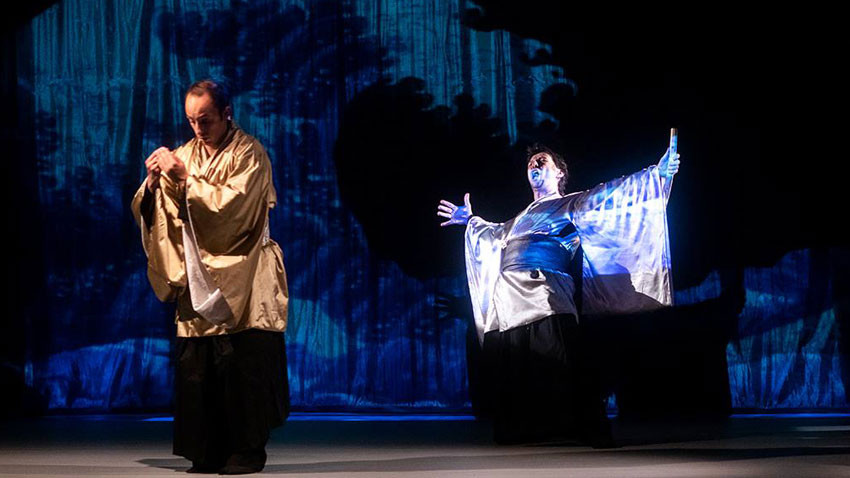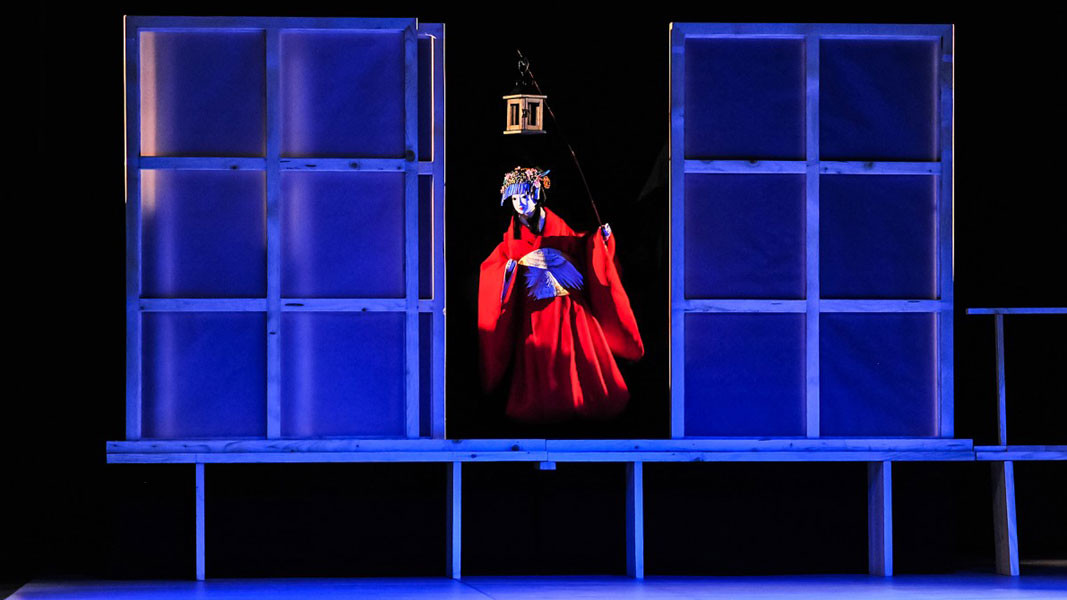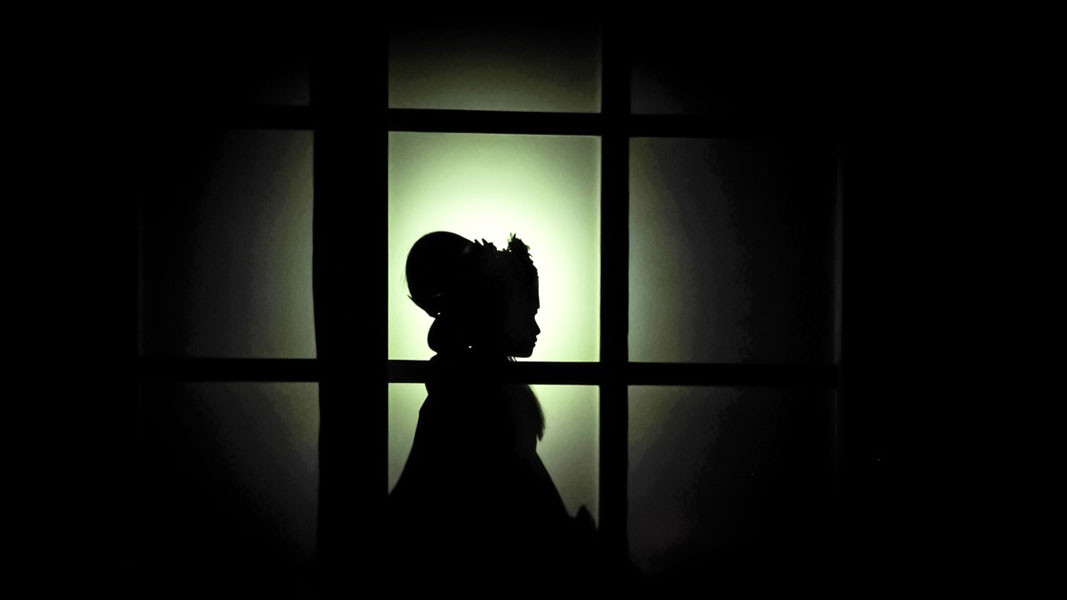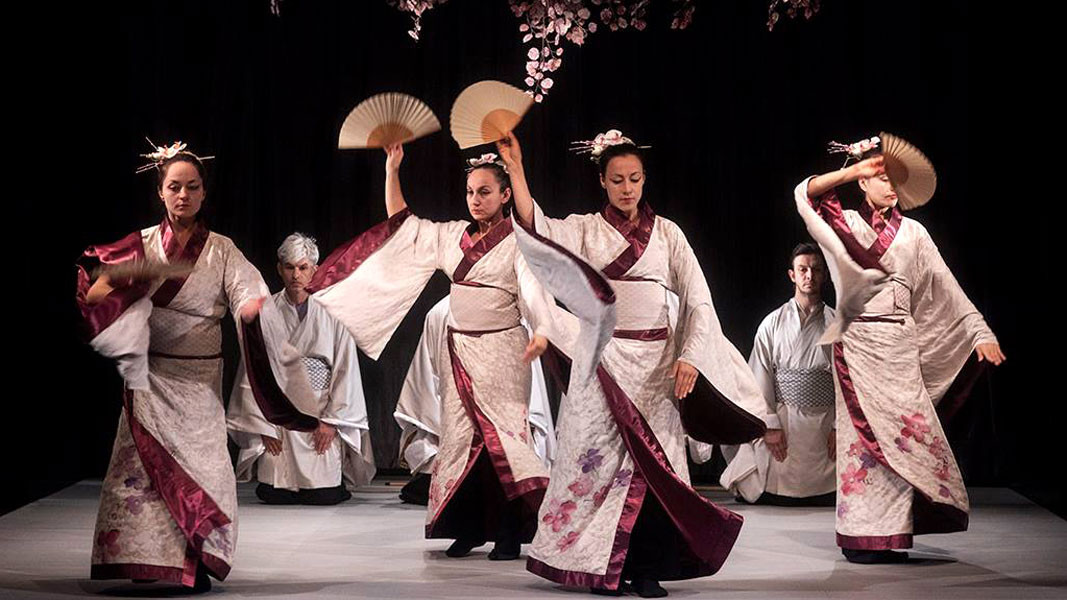The Days of Japanese Culture in Bulgaria have become the reason for presenting a puppet theater play for children and adults at the Sofia Army Theater. The play is captivating with colors and exotic atmosphere from the Land of the Rising Sun.
“Prince of the Sea and Prince of Earth” takes us into Japanese mythology and tells us the story of the grandchildren of the sun goddess Amaterasu, the brothers Hoori and Hoderi, with a focus on state rule based on the ruler's qualities and merits that earn him the love of the people. The show, supported by the EU Japan Fest 2019, is already part of the permanent repertoire of the State Puppet Theater in Plovdiv and is part of the cultural program of Plovdiv European Capital of Culture 2019.
Director is Elena Panayotova, narrators are Victor Boychev and Rumen Karamanov. The good prince Hoori in his human image is performed by Velizar Evtimov and the angry Hoderi is played by Alexander Karamanov, whom we have asked about the efforts to prepare for the play.
"It took about 2 months of continuous rehearsals and we first needed to become acquainted with Japanese culture," he says. “It is quite different from ours, just like their theatrical plastic movement is different."

The show features two beautiful puppet dolls created in the spirit of Japanese craftsmanship.
"The princess doll you saw is a type of doll that had not been made for 50 years," Elena Panayotova says. “I was lucky to meet Master Arata Kawaguchi in Tokyo. He is 75 years old but got inspired to make such a doll, and for a year we were discussing our understanding of the character, of beauty and of the story as a whole.”
The Princess of the Sea is operated by three puppeteers.

"It was very interesting for us to learn how to operate this puppet," Maria Dimitrova says. “In Japan, the head and right hand master needs to study for over 10 years. Puppetry begins at the feet of the doll, before one learns how to operate the left hand and finally the head and right hand. We didn't have a lot of time to do this and used a more ‘Bulgarian’ method. However, puppetry requires complete dedication and in this case complete synchronization with the two other people."
How is this synchronization achieved?
"It was the most interesting thing for me," Natalia Vassileva, who operates the hands, says. “We had to go together, sit at the same time without looking at each other. We need to act like one and be the spirit of this puppet doll. We have succeeded because of the fact that we have been friends for a long time and we love very much what we do."

"We have worked with many puppets, but this type of puppetry is different than the systems we have studied in Bulgaria," Michaela Andonova, who operates the head, adds. In Japan, only men lead puppets, and operating them requires more force, but I think we have also managed to do it."
The prince puppet is led by Daniela Teneva, who studied under a master puppeteer in Japan.
"I met some wonderful people who had not trained foreigners before but were willing to teach me," she says. “Japanese puppeteers do not speak because there is a storyteller. The man who taught me is called Ken (Takeshi) Nishihashi, who was 70 years old at that time, but had more energy than I do."
The music in the play is work by Asen Avramov and is performed live by Marina Velikova and Yordan Vichev.

The thirtieth edition of the Days of Japanese Culture marks 110 years since the start of official contacts between Bulgaria and Japan, 80 years since the establishment of diplomatic relations between the two countries and 60 years since their restoration after the end of World War II. The rich program started in early September and will end on December 6, with a concert by the BNR Children's Choir and Fuyuki Enokido, playing the traditional Japanese instrument Koto. The choice is not accidental – the Bulgarian National Radio Children's Choir is well known to the audience in Japan, where the choir has had 18 tours with more than 500 concerts in 150 cities.
English: Alexander Markov
Photos: pptheatre.comThe short animated film "Life with an Idiot" by Theodore Ushev won the best film award at the Beijing International Short Film Festival. The animator announced the news on his Facebook profile. "I am very happy because it is..
The Vladigerov brothers will provide a live musical accompaniment to a silent film at Vienna’s Metro Kulturhaus cinema , marking their second time taking on the challenge. The historic Metro Kino has been run by the Austrian Film Archive since 2002,..
The film “Made in EU” by director Stefan Komandarev won the Audience Grand Prize at the 63rd Gijón International Film Festival in Spain. The film triumphed in competition with 95 titles, BTA has reported. “Within a few days, we..

+359 2 9336 661
